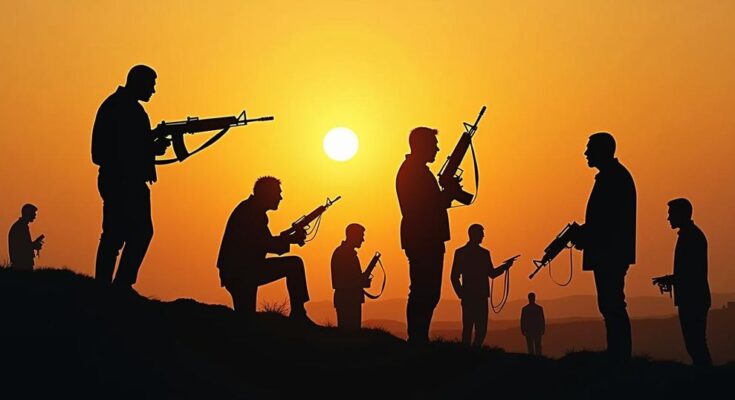In a recent expert discussion on the conflict between Israel and Hezbollah, scholars Aaron David Miller and Hussein Ibish analyzed Israel’s military operations and their humanitarian implications. They emphasized the potential for ongoing violence to engulf Lebanon further while cautioning about possible provocations from Iran. Both experts advocated for U.S. intervention to help de-escalate and warned of the risks of a broader regional war if tensions remain unchecked.
In a recent discussion between experts on Middle Eastern affairs regarding the ongoing violence between Israel and Hezbollah, Geoff Bennett engaged with Aaron David Miller, a senior fellow at the Carnegie Endowment for International Peace, and Hussein Ibish, a senior resident scholar at the Arab Gulf States Institute. The discourse revolved around the military operations conducted by Israel, which have reportedly resulted in significant casualties in Lebanon, including civilians. Hussein Ibish presented the view that Israel’s military strikes are designed to incapacitate Hezbollah and related resources, likening the strategy to their actions in Gaza against dual-use facilities. He emphasized the psychological warfare and destruction intended to convey a strong message to both Hezbollah and the Lebanese population. In contrast, Aaron David Miller expressed concerns over Israel’s military strategy, while suggesting that their current campaign has placed immense pressure on the civilian population, entangling Lebanon further in a conflict not aligned with its national interests. Discussing the broader implications, both experts noted the risk of escalation involving Iran. Miller cautioned that Hezbollah has not yet crossed critical thresholds, which could lead to a far more significant confrontation. The conversation highlighted the precarious balance of power in the region, with both experts acknowledging the potential for a multi-front conflict if tensions continue to rise. Furthermore, the need for effective de-escalation measures was discussed, with Ibish suggesting that the United States could play a crucial role in moderating Israel’s actions. They also shared skepticism about the realization of lasting security for Israel through current military strategies, indicating that these tactics may merely provide a temporary illusion of safety.
The conflict between Israel and Lebanon has deep historical roots, primarily involving Hezbollah, an Iranian-backed militant group. Recent escalations have drawn significant international concern due to the humanitarian impact and potential for wider regional instability. The discussion emphasizes the strategic dynamics between Israel, Lebanon, and Iran, particularly the geopolitical ramifications of military operations and the roles of external actors, such as the United States, in influencing the conflict’s trajectory. This analysis encapsulates the multifaceted nature of the conflict, including the impact on civilians, the critical decisions regarding military strategy, and the potential for escalation into a broader war involving multiple state actors. Given the current sensitivity in the region and the historical context of Israel and Hezbollah’s interactions, the perspectives shared by Miller and Ibish shed light on the complexities inherent in diplomacy and military engagement in the Middle East.
The dialogue between Aaron David Miller and Hussein Ibish provides critical insights into the escalating tensions between Israel and Hezbollah. While both experts articulated the complexities of the conflict, they stressed the urgency for de-escalation and the pivotal role of external influences, particularly from the United States. They cautioned against the dangers of an extended military campaign and the troubling implications for Lebanese civilians, highlighting the need for a nuanced approach to achieving long-term stability in the region. As stakeholder actions continue to evolve, the stakes remain high for all parties involved, emphasizing the necessity for strategic restraint and diplomatic engagement to prevent further escalation.
Original Source: www.pbs.org




